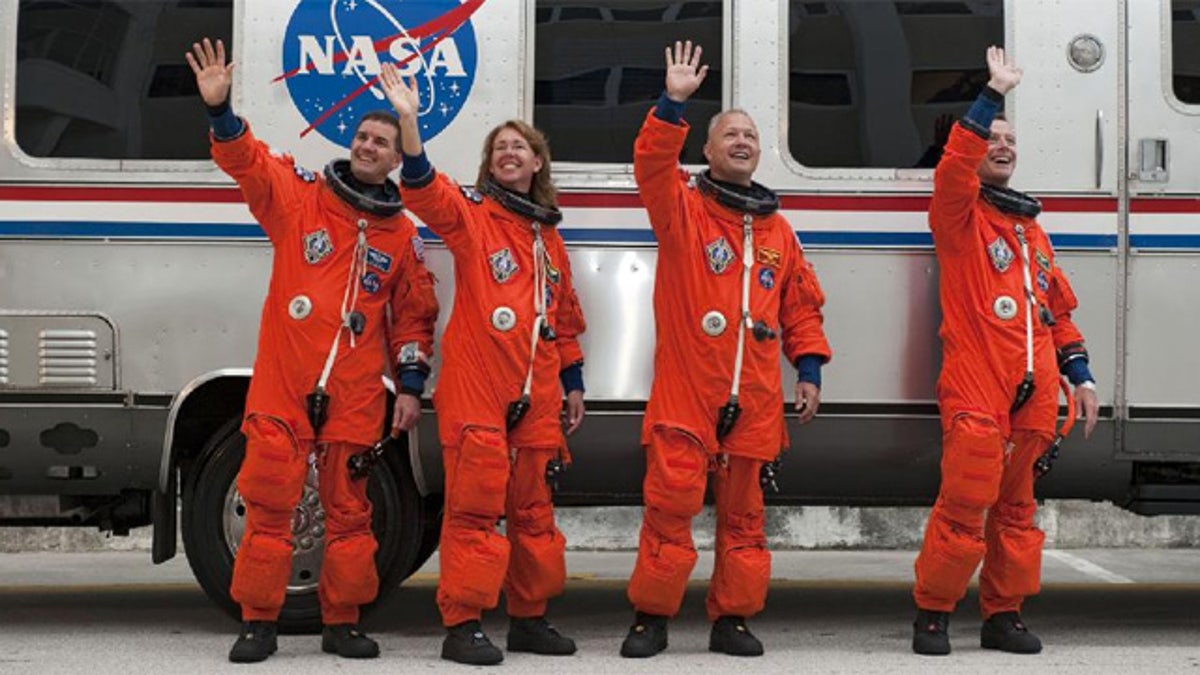
The final crew of Space Shuttle Atlantis (from left to right): mission specialists Rex Walheim and Sandy Magnus, pilot Doug Hurley, and command Chris Ferguson. (NASA)
After decades of inspiring millions around the globe, space shuttle Atlantis made a final, picture-perfect touchdown at Kennedy Space Center at 5:56 a.m. EDT -- ending the shuttle program.
"Job well done, America," mission control told pilot Doug Hurley and the thousands watching and listening to the landing in the pre-dawn dark.
But what's America's future in space, and what of our space science experiments? The Atlantis flight crew -- composed of commander Chris Ferguson, pilot Doug Hurley, and mission specialists Rex Walheim and Sandy Magnus answered these and other questions for Fox News.
Is this the end of NASA?
Chris Ferguson: Absolutely not. We have a vibrant program right now. We have American astronauts living on the International Space Station full time -- as we have for the last eleven years. They get up and down in Russian Soyuz rockets, so we have our business partners involved -- and of course, we’re building new rockets to go to low-Earth orbit.
What does it feel like to be in space?
Sandy Magnus: It’s a whole different way of living. You look at the things here on the table, they’re staying there because gravity’s holding them down. In orbit you have to keep track of your stuff on a whole new level -- and you keep track of stuff because you’re floating from place to place to place.
The shuttle’s a small volume and so you get very comfortable moving around in it. Then when you dock in the space station, it’s this monstrous huge house/laboratory that we’ve built up there, and you have to get used to moving around all over again.
Do you really have to steer the space shuttle?
Doug Hurley: You do steer it quite a bit. There are phases of the flight ascent where if we have to touch controls, that means something really bad has happened. But luckily, the folks take great care of us down there in Florida processing these vehicles. We have to hand-fly the rendezvous and the undock, though. And of course Chris landed the vehicle in Florida.
What sort of science took place?
Chris Ferguson: We had eight powered payloads on the mid-deck researching everything from bone loss to osmosis and water-purification systems. We have a lot going on up there.
